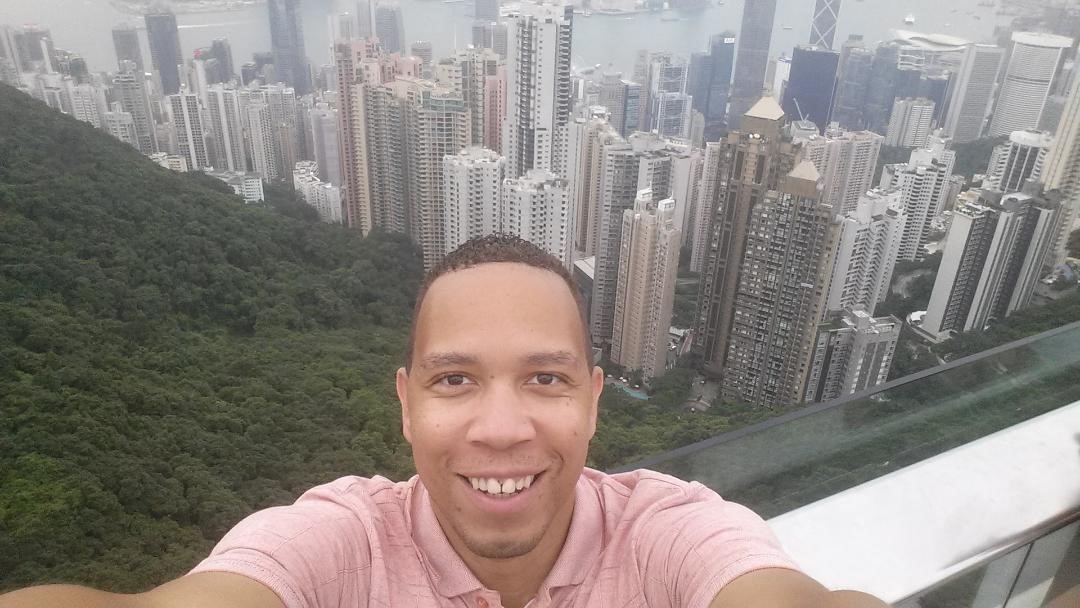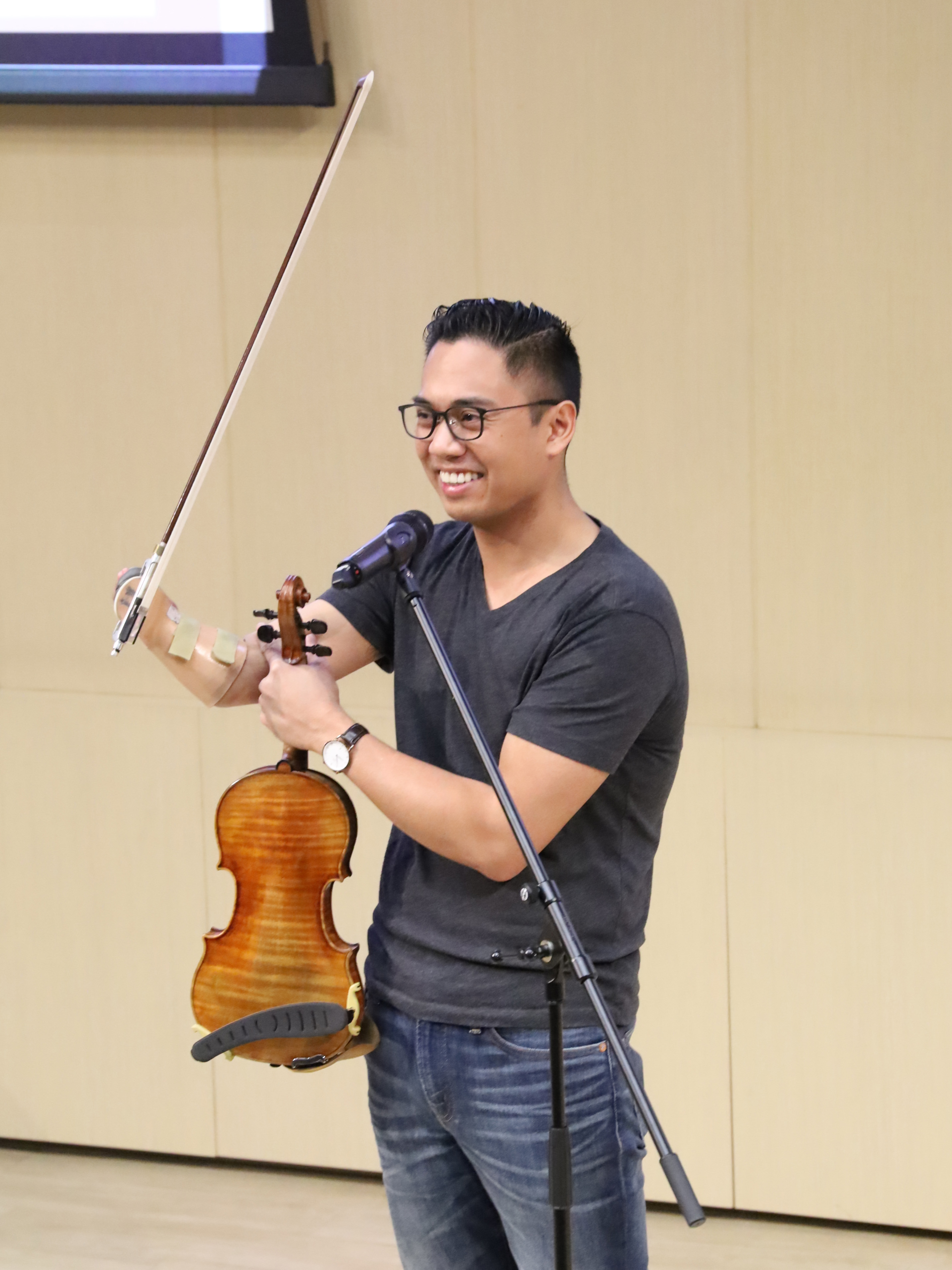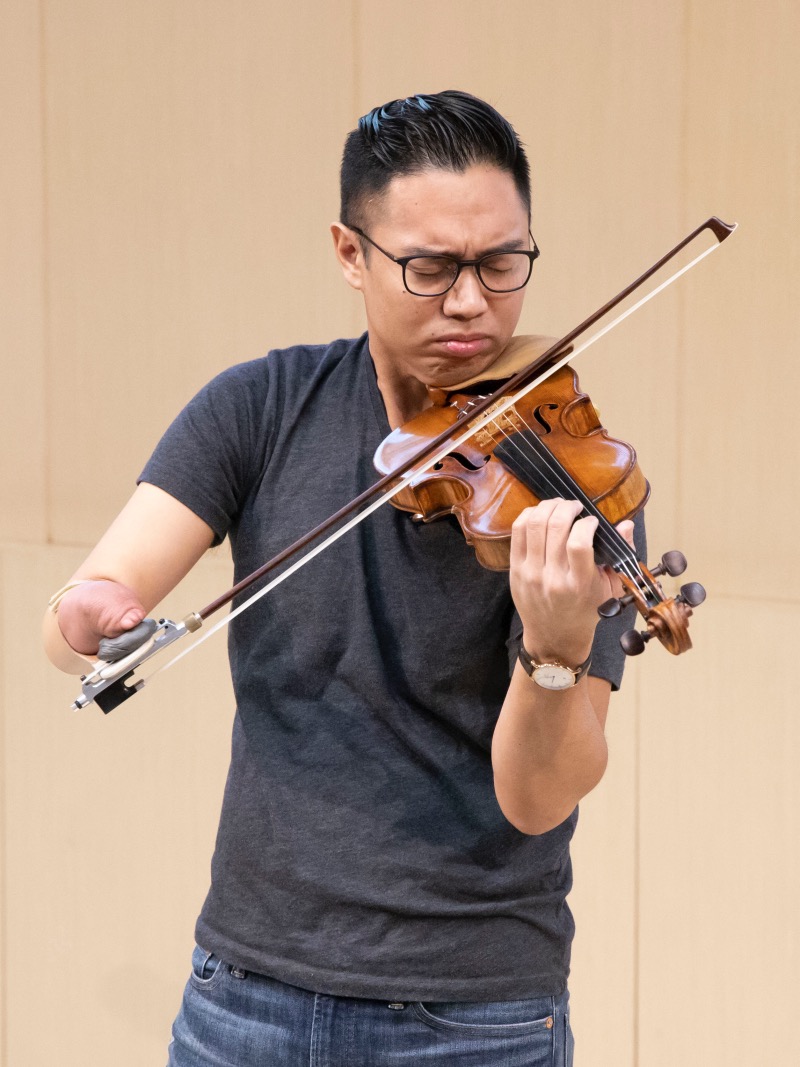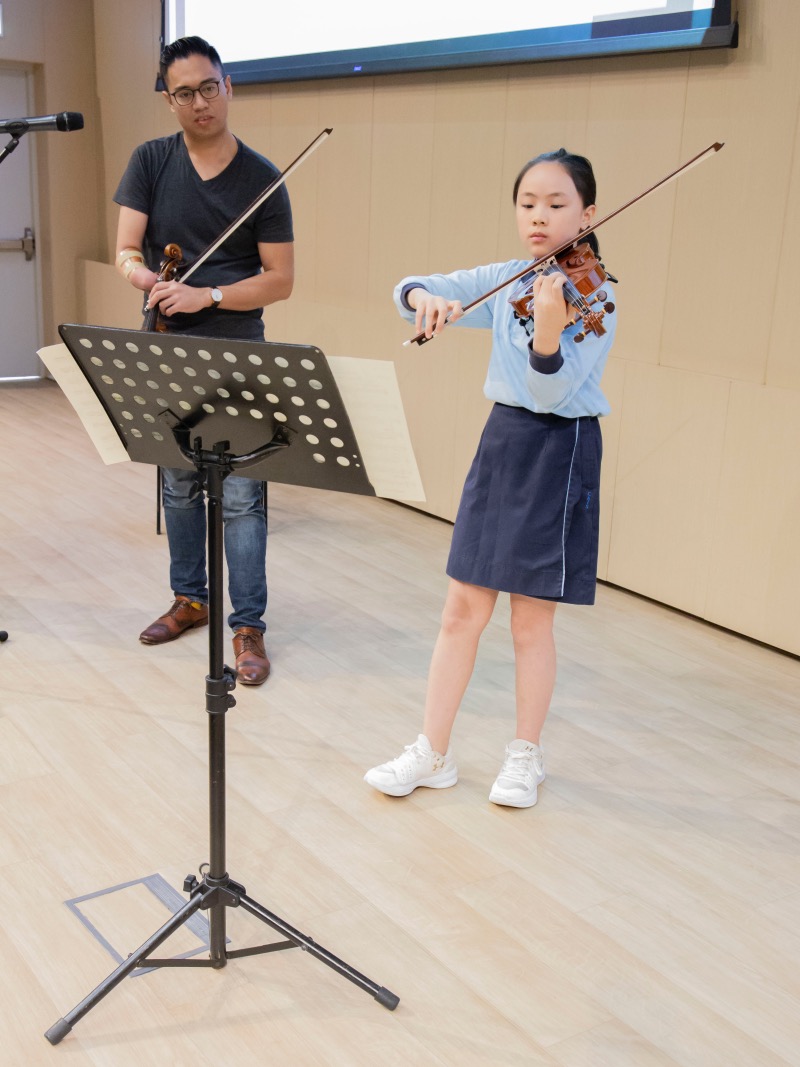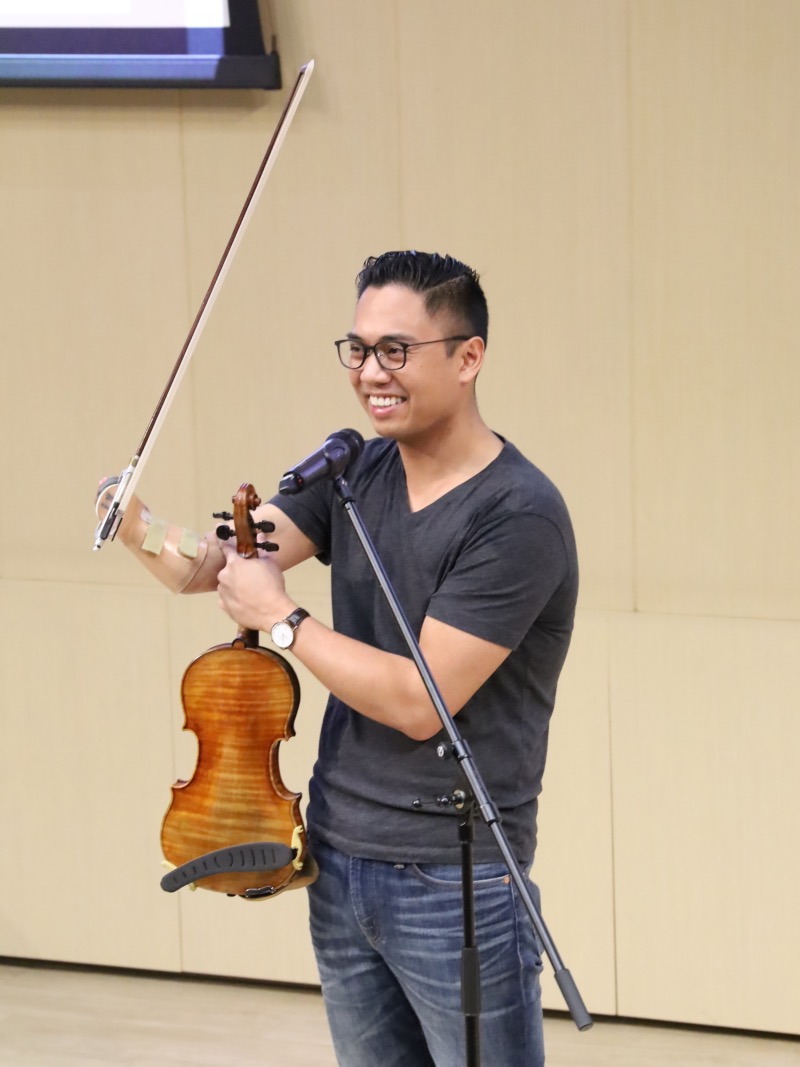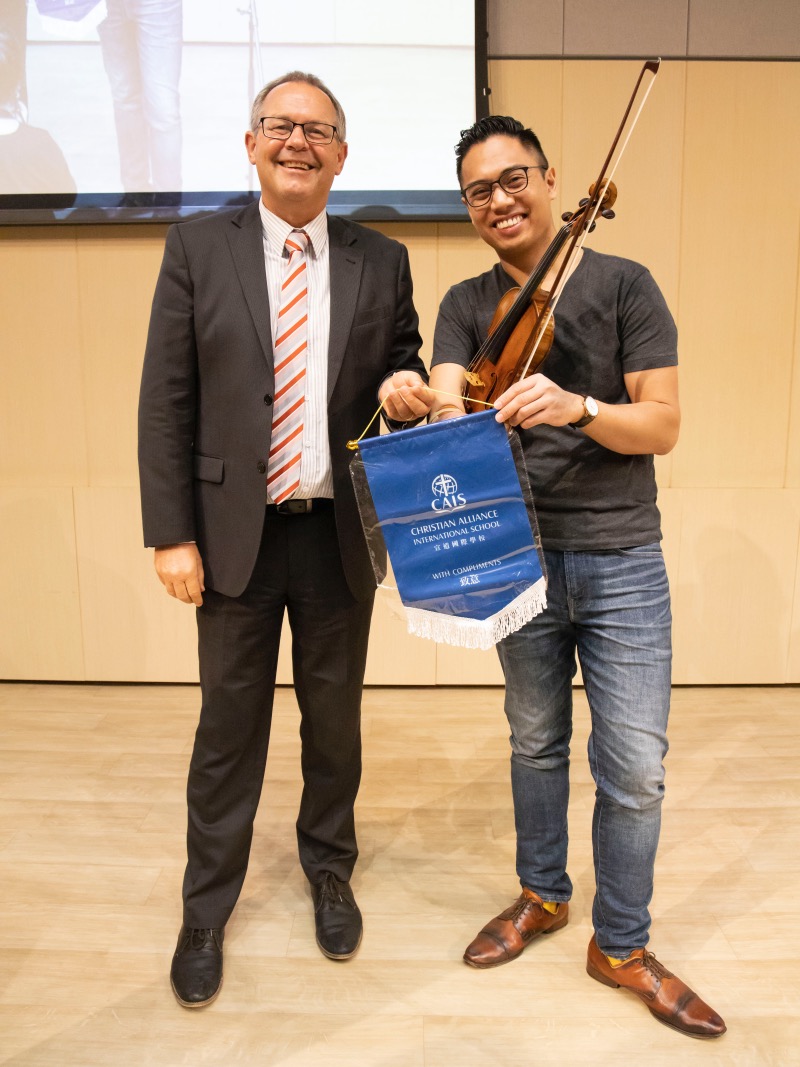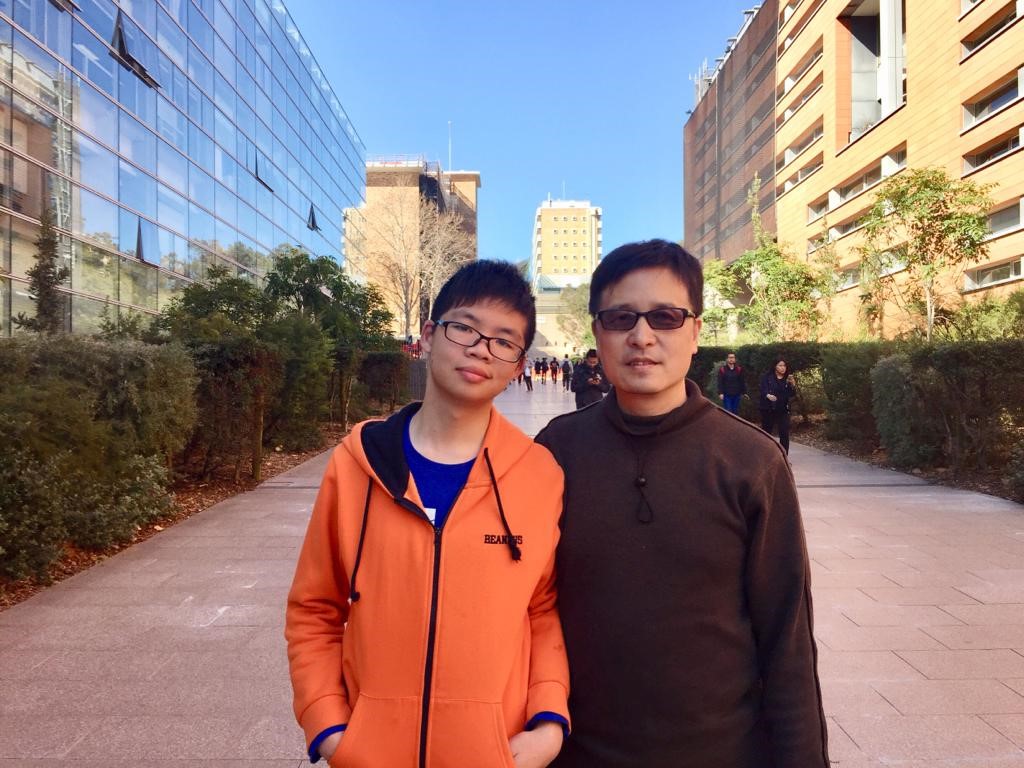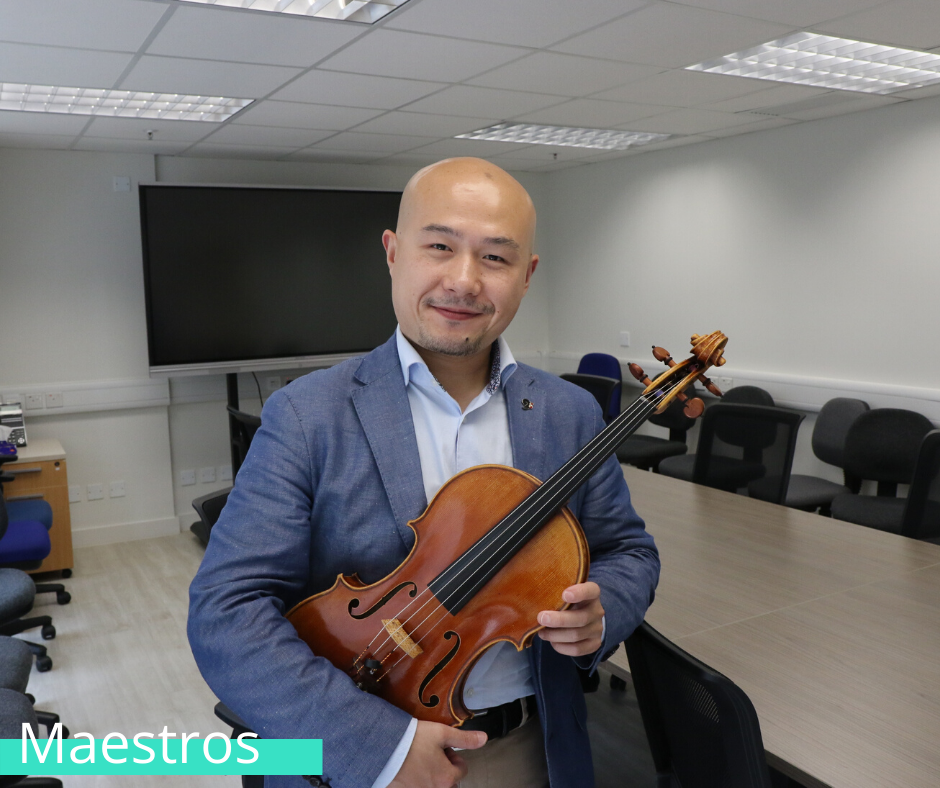Elizabeth Smith, Music Teacher
Elizabeth Smith, Music Teacher
June 12, 2020
Where did you grow up/study?
I grew up and studied in Edmonton, Alberta, Canada. Alberta is mostly a flat prairie region, but to the south of the province, there are some lovely mountains and lakes that are great for hikes!
 Can you tell us more about your role at CAIS.
Can you tell us more about your role at CAIS.
I will be teaching music at CAIS! The music program will include choir, band, and elementary music which involves singing, recorder, percussion instruments, and movement. I will also be helping out with different clubs and athletic activities at the school.
How did you wind up here?
Well to be honest, this is not something I had planned. I had just recently graduated from university and began applying for jobs in my country. Due to the COVID-19 pandemic and budget cuts to education in my province, not many jobs are available at the moment.
In January of this year, I went to a career fair for education held at our school and was given a program sheet of all the different schools, and districts who came to the event. Due to time constraint, I was not able to visit all of the booths, but I kept that program sheet for future reference.
In April, I began looking for jobs and an idea popped into my head. I had just finished my practicum at a school and realized that I needed to be able to live out my Christian values in the work place without fear of repercussions. There are only two schools in my city that are Christian and both already have music teachers. Then I remembered the program sheet from the fair and that is how I came across Christain Alliance International School.
Through prayer and planning I look forward to enhancing the music program at CAIS and sharing God’s love to his sons and daughters.
Biggest challenge and rewarding moment working in music education?
For me, the biggest challenge for working in music education is finding the best approach for teaching a concept. What works for one student may not work for the other but it is finding out what works them and seeing them succeed that brings the joy and reward of teaching. Establishing goals with a student and their parents, then finding strategies and resources that fit their needs is the first step in confronting the challenge. Seeing that student achieve their goals because of the additional steps you took can change the way a student sees themselves and their ability to succeed and that is the reason we teachers do what we do.
What drew you to music? How has music education impacted your life?
From grade 5-9, I was homeschooled with my brother and sister. We did many extra-curricular activities, including sports, art, and music outside of school. I had played in wind band since grade 5 and really enjoyed the communal and aural aspects of it. We had changed teachers every 1-2 years and in my grade 9 year, we had these awesome teachers named Brandy Lee and Laurel. Even though there was only 6 of us in the band, I remember that they made us feel like we were doing something important and continually communicated their high expectations for us.
Every week we played the best we could and had fun as a result. Through our regular practice outside of class time, we were able to develop a relationship during our class time that left a lasting impression. Once I got into university, I learned focused and intentional practice was essential for achieving your goals. Combined this with consistent hard work, and you can achieve your dreams. That is the beauty and science of music. Playing music well is a goal that takes a lifetime to achieve but you can do it if you are persistent and receive the support you need. This also applies to all aspects of life itself. This is why I believe learning music is a crucial part of learning how to be a responsible and empathetic human being.
What kind of student were you?
I am a lifelong student. I always look for ways to improve my teaching and constantly challenge myself to learn different ways of approaching a problem or aspect of life. It is my goal to inspire students to solve problems on their own by giving them the proper tools and strategies.
What do you miss most about Alberta when you are overseas?
What I am going to miss the most is my family, the space in my country, and the fresh air that is throughout the city. But I am not going to miss those –30 C winters!
Tags:
[st_tag_cloud]
Elaine Wu, Primary Homeroom Teacher
Elaine Wu, Primary Homeroom Teacher
June 12, 2020
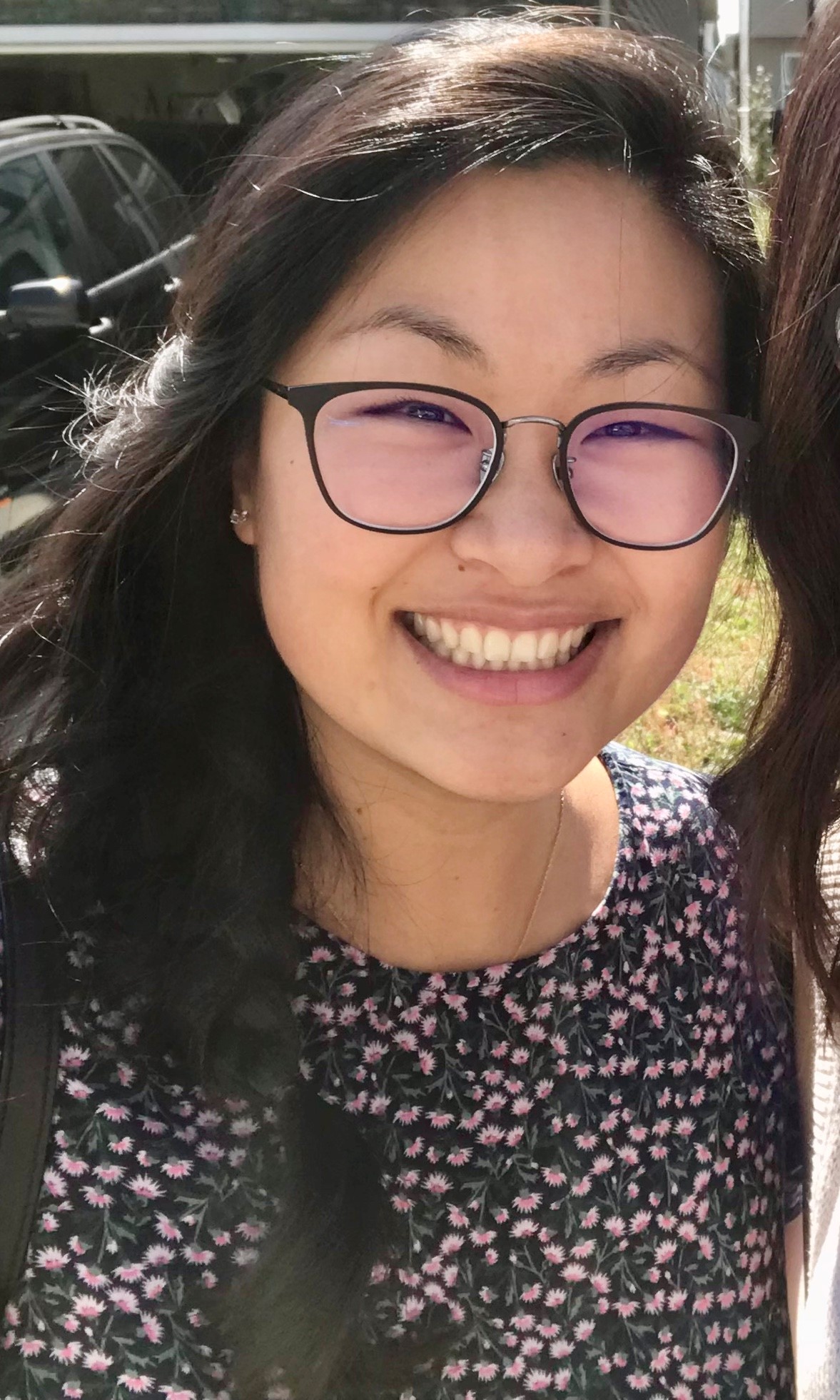
Where did you grow up/study?
I grew up in the beautiful city of Vancouver, BC, Canada. When I was in Junior High, my family moved to Calgary, AB, because of my parents’ business. I attended university in Edmonton, AB, and after obtaining my BA in Psychology, I graduated from the After-Degree Education program at the University of Alberta.
Can you tell us more about your role at CAIS.
I will be a Primary Homeroom Teacher!
How did you wind up here?
I had known since my first missions’ trip when I was 16, that I would eventually make my way to teach in Asia. However, as life happens, I had pushed the idea aside for a later time. I wasn’t quite ready to leave my home, family, and friends just yet. After completing my Education Degree, I took a trip to Hong Kong with my family and met up with some old friends from that first missions’ trip. They reminded me about what God had once put in my heart, and I couldn’t ignore it any longer. After wrestling with the idea in thoughtful prayer, I sought out to find a teaching job while I was still in the city. Two days after submitting my applications, I received a call for an interview for the next day. My first teaching position brought me through an incredible 7-year journey. While teaching at a non-faith-based school can be equally as rewarding, it had its limitations which is why I wanted a change, and I’m looking forward to the amazing new faith opportunities CAIS will bring!
Biggest challenge and rewarding moment working in education?
Over the years, there have been so many rewarding moments that I cannot name just one. Some of the most rewarding moments have been when past students come back to visit and tell you all the ways in which you have helped make a positive difference in their lives!
What are you passionate about?
I’m passionate about music and the creative arts. I also love travelling and playing tennis!
Tags:
[st_tag_cloud]
Alice Lee, Primary Homeroom Teacher
Alice Lee, Primary Homeroom Teacher
June 12, 2020
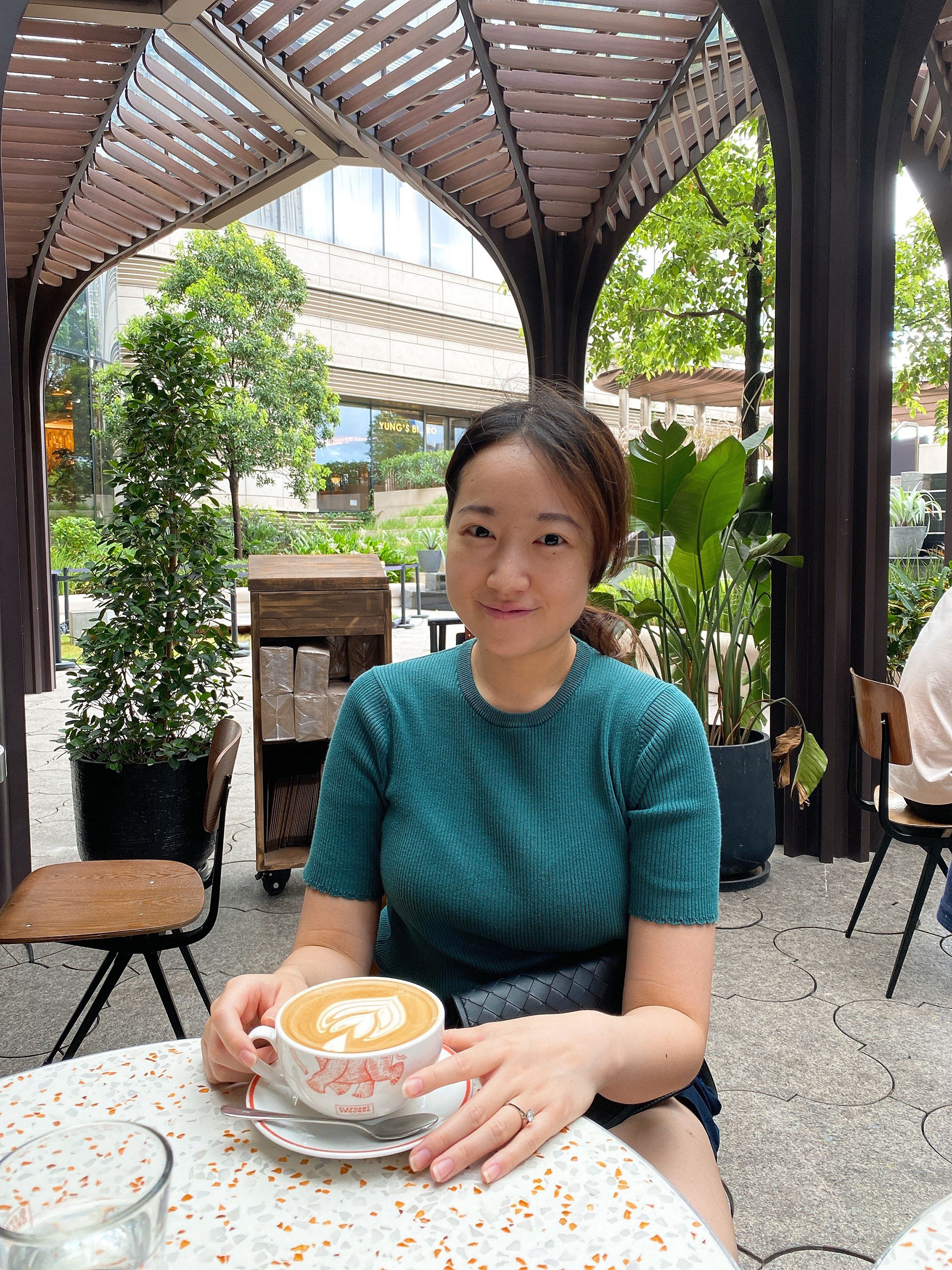
Where did you grow up/study?
I was born and raised in a trilingual family in Hong Kong. I went to the UK when I was 16 and finished my studies there. After 8 years, I’ve finally decided to move back to Hong Kong!
Can you tell us more about your role at CAIS.
Being an English Learner Specialist, I will be working with my team to provide students with ELL with the support they need to access the learning in their classes. Having only worked in the primary section, it will be a new challenge for me.
How did you wind up here?
To be honest, I didn’t plan to come back to Hong Kong this year. However, due to the coronavirus, my husband and I decided it was God’s time schedule for us to move back to Asia.
Biggest challenge and rewarding moment working in education?
I would say the biggest challenge I’ve faced is dealing with tricky children who come from complex family backgrounds. However, the most rewarding moment to me is when I can feel that I’ve built a trusting relationship with those children. It makes me feel special!
What kind of student were you?
I was never quiet. I wasn’t extremely studious and preferred extra-curricular activities like singing in the choir and playing for the school hockey team.
What do you miss most about Hong Kong when you are overseas?
Definitely the food!
Tags:
[st_tag_cloud]
Charles Grayson, Director of Student Services
Charles Grayson, Director of Student
June 29, 2020
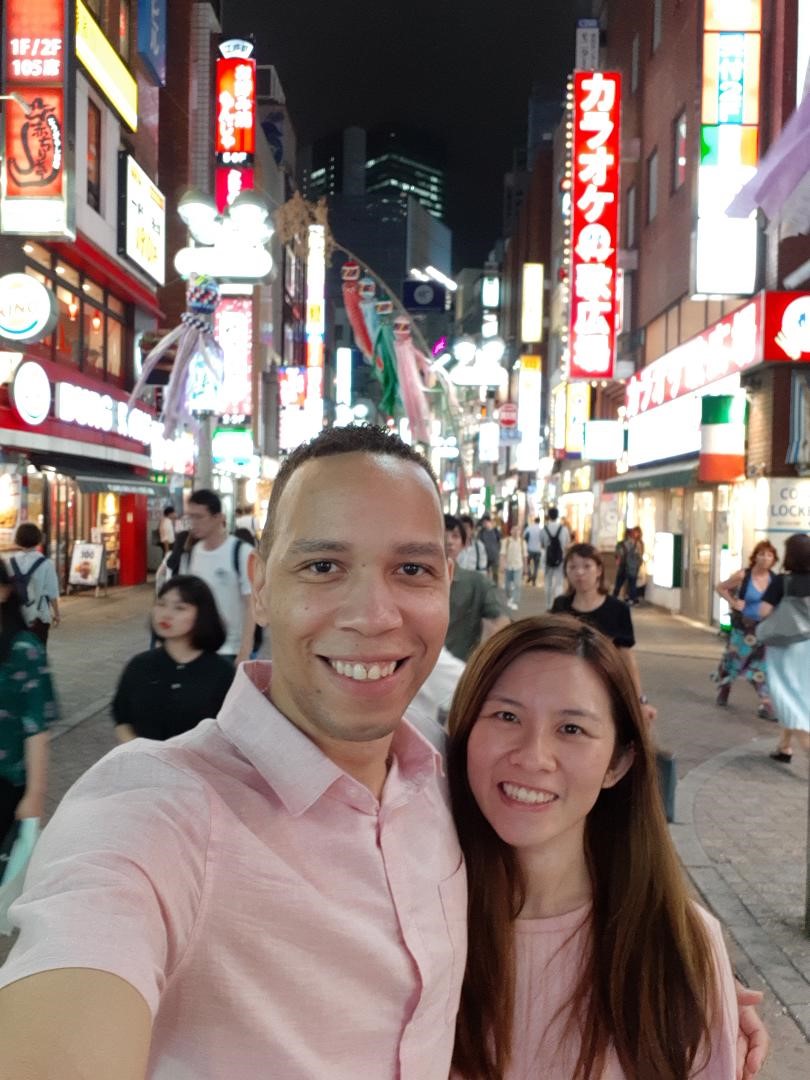 Where did you grow up/study?
Where did you grow up/study?
I grew up in Pittsburgh, Pennsylvania! That makes me a Steelers fan by default. However, I am much more of a Pittsburgh Penguins fan for hockey.
Can you tell us more about your role at CAIS.
My role is really a mixture of my passions. I will be leading the student support team working with students from all grade levels through CAIS providing social emotional learning, behavioral management and discipline, providing emotional support, shaping school and student culture through building upon our support for students. Additionally, I will be working with CAIS on university guidance and offering parental support for school coaching where needed.
How did you wind up here?
I chose CAIS because of the social justice and Christian community that makes up the identity for CAIS. This school stands for Jesus apologetically on a mission to build disciples and train students to do more than just learn and study. CAIS values making an impact into the lives of those we have been placed in – the community.
Biggest challenge and rewarding moment working in student services?
Most rewarding moment is witnessing a student’s behavior evolve as they are redirected and begin using skills they have been coached on to manage a situation by becoming emotionally mature. The biggest challenge is the beginning stages of resistance and a student not believing that they can grow in managing their emotions and behavior. Equally, there are students who are in the school that are longing for love and attention and needing to be shown love from staff.
In your opinion, why is the work Student Services Department doing important?
Firstly, it is important for the child. Being student-centered must always be the role of student personnel in a student services division of the school. And secondly, it is important for the parent. They are the first to identify and acknowledge the needs of their child but often times with limited knowledge of the help that can be provided. Moreover, biblically speaking, we are called as Christians to be a voice for the voiceless. There are just too many students facing challenges whereby the level of care and attention they need must be amended to meet the child/student where they are at. This calls for a concerted effort that has planned intentions of moving the student to their greatest potential whether academically, socially, behaviorally, spiritually or a combination of all the above. Coming from spending years in student services, the end goal of the Student Services Department should always be working ourselves out of a job. If we are doing what we do well, creating students who become self-sufficient and independent is always a positive outcome. That is how I evaluate and judge my work.
What are some of the initiatives you will be working on which would potentially be translated to physical application?
Among things on my agenda, I will be working to implement an intervention and support system for students that target their needs and develop a greater sense of school culture, identity, maturity, and safety.
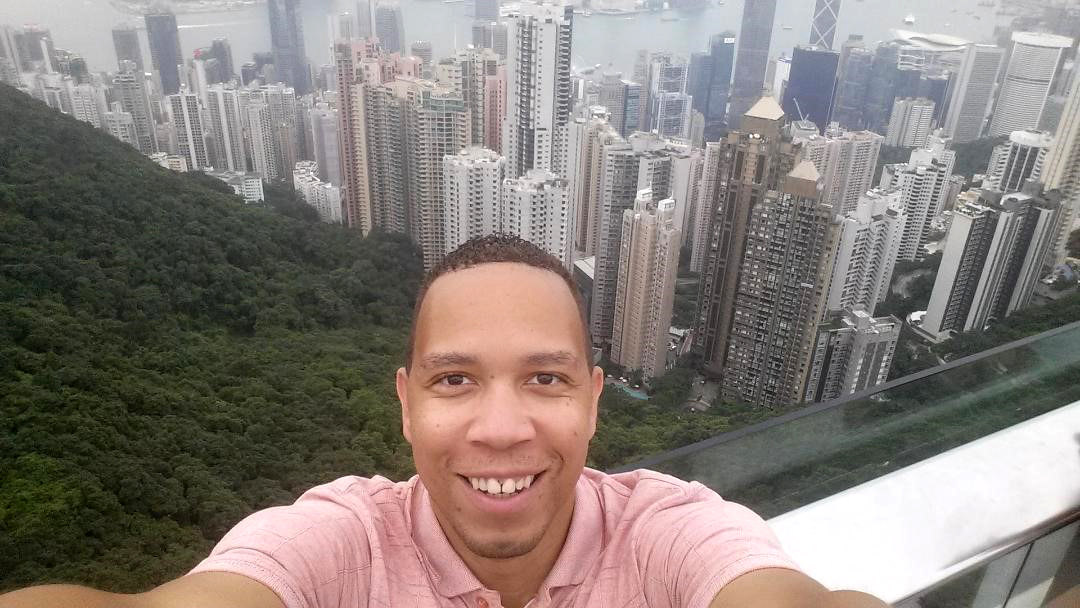
What kind of student were you?
As a student I was very inquisitive. In fact, I still consider myself a student because there is just so much to learn. Reading newspapers, articles, journals, and listening to experts on a variety of topics are the things that I most enjoy. I am also a voracious reader and avid viewer of all things current affairs in the media.
What do you miss most about Pennsylvania when you are overseas?
Like most foreigners, I would have to say family. However, I have been blessed to make (and grow) my own family here in Hong Kong. Being married to a local keeps me grounded on family support and all things Cantonese cuisine related.
Tags:
[st_tag_cloud]
CAIS teachers giving out encouragement messages to help students stay energetic and strong for 2020!
CAIS teachers giving out encouragement messages to help students stay energetic and strong for 2020!
June 12, 2020
CAIS Behind the Scenes: The Pilgrim’s Progress
CAIS Behind the Scenes: The Pilgrim's Progress
June 12, 2020
BEHIND THE SCENES
We live and think in metaphors. That’s because it is easier for us to make sense of unknown uncertainties by relating them to things that we are familiar with. We take, for example, the ups and downs of life and make sense of them using the narrative of journey or adventure. This way of thinking acts as a therapeutic buffer fortifying us for the hardship we encounter throughout life’s journey. Going on a journey is also the theme in the newly launched project of Richard Nadar and his co-host Dr Jonathan Johnson. Together they invite us to embark on a journey through the beloved classic Pilgrim’s Progress by John Bunyan. To kick off our new series “Behind the Scenes”, we sat down with Richard to talk about this project. We hope you enjoy the read as much as we enjoyed having the conversation.
Vinod
Richard
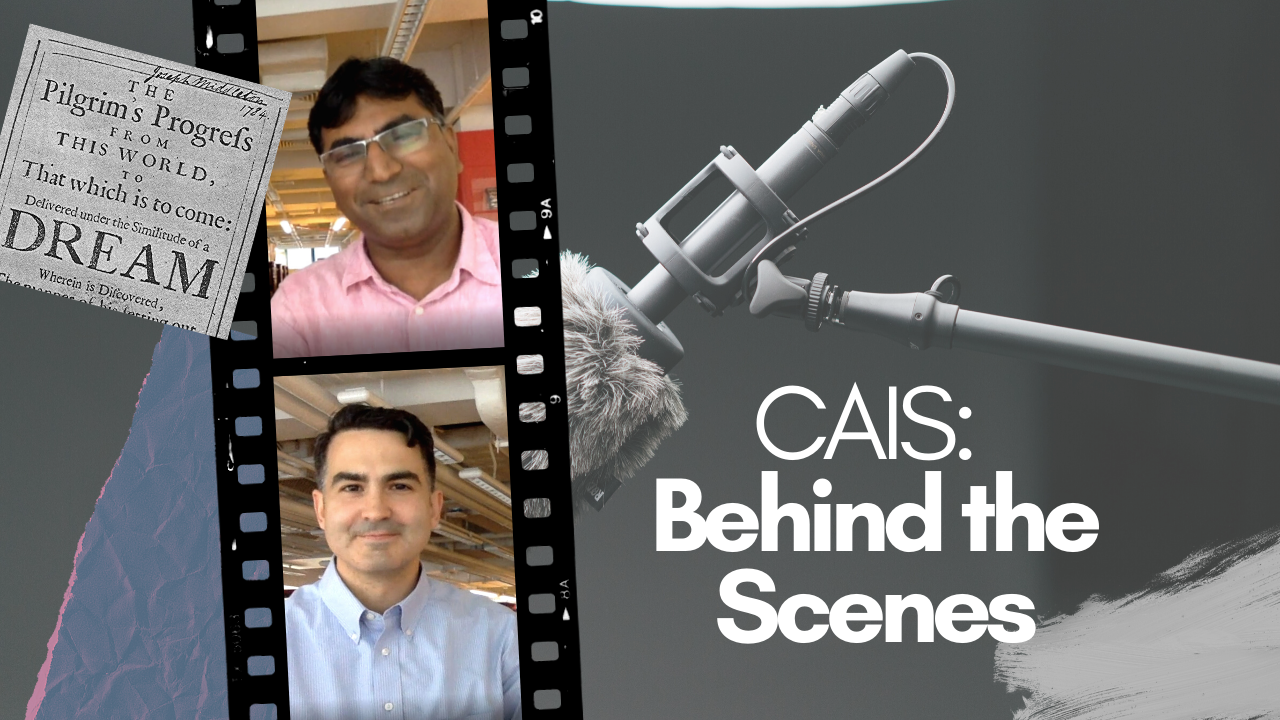 Hi Richard, we go back a long way and I am always amazed at the things you have on your plate. You have a fairly demanding teaching load with your Christian Ethics courses and AP courses (Psychology and History) preparing students for these high stakes exams. I know besides that you have recently completed some online courses as varied as Contract Law with Harvard University and Church History from Ancient to Present with Ligonier Ministries. You are a learning machine! And now you have teamed up with Dr Johnson in producing this series on Pilgrim’s Progress. Do you ever sleep?
Hi Richard, we go back a long way and I am always amazed at the things you have on your plate. You have a fairly demanding teaching load with your Christian Ethics courses and AP courses (Psychology and History) preparing students for these high stakes exams. I know besides that you have recently completed some online courses as varied as Contract Law with Harvard University and Church History from Ancient to Present with Ligonier Ministries. You are a learning machine! And now you have teamed up with Dr Johnson in producing this series on Pilgrim’s Progress. Do you ever sleep?
If I have to use an analogy of my sleep pattern, then I’m an owl for sure. The most productive time for me is during the night. It’s quiet and calm, and I carry on with my work. I sleep at around 12:30 or 1:00 a.m., and I wake up by 6:00 a.m. during school week. To make this possible, I keep watch over my biological clock, combined with food and exercise.
This is the launch of our new series Behind the Scenes where we look at the amazing work our teachers are doing above and beyond their teaching duties and explore the whole spectrum from idea to launch in order to share their journey with our readers. You are the first of many we hope to profile in this series. So coming back to Pilgrim’s Progress – what is the idea, I mean, what prompted you to do this? And why this book?
I was having a conversation with my colleague, Vinod Khiatani from CAIS Advancement Team, and he brought up the idea of book study during school closure. I took inspiration from a Facebook series on CS Lewis’ ‘Mere Christianity’ hosted by Brad Zockoll, Senior Bible Teacher at Grace Christian Academy. I discussed with Vinod as we both enjoy reading classical literature and felt that we are missing out on the value of reading the classics, especially from medieval or ancient times. I eventually decided to do something about it and took on Pilgrim’s Progress by John Bunyan to kick off this book study project.
Pilgrim’s Progress is a classic and is voted as number one best read novel apart from the Bible. And so, to bring the same awareness to people, I decided to make this series. Most importantly, being a Christian Ethics teacher, doing this book means it’s an education on the biblical redemptive story, theology, and wisdom for living.
So you had the idea, how did you go about implementing it? What was your first action item or if I may phrase it differently, how did you get the ball going?
I wanted this to be a collaborative project as I did not want to do the study by myself. I then reached out to Pastor Johnson from Island Baptist Church. He was excited about this because he also had done the series before. Hence, the birth of the weekly project CAIS Insights: Pilgrim’s Progress.
The reason I asked the question was because we (students included) all have these great ideas and projects we want to do and more often than not, it fizzles away and never sees the light of day. We get bogged down with the complexities of the project and what not, but fail to take the initial step because in most cases, we don’t know what first steps to take. What would your takeaway lesson be here?
I think I often remind my students about Nike’s motto, which is ‘Just do it’. It’s sometimes not enough to have good ideas, but you must act on it. And so, my takeaway lesson here is to work on the idea after talking with Vinod, I contacted Pastor Jonathan and shared with him about the project and in no time, we laid out a rough plan and started working on it.
How do you envision this project will unfold? Are you going to be producing more videos like this and how are you going to decide which book(s) to tackle next?
This project will provide for us lots of insight as to how the entire program unfolds for us. We’ll actively seek feedback, and I envision I will do similar series in the future on books from CS Lewis or other good classical literatures.
I understand Dr Johnson pastors an international church, so who are the audience you are trying to reach with these series?
The approach is to bring these classics to the general audience who may not be aware of them and get them excited. And so, we are looking at teachers, students, church leaders, members, etc., who can use this to further their learning process on classical Christian education.
I have previewed the introduction and I liked it. I am looking forward to the remaining episodes. From my point of view, it looks so effortless, what are some of the challenges you had in doing this project?
The introductory series was fun to make. One of the challenges was to select relevant information that we wanted to include in the video as we wanted to keep the video short and succinct – limit to 20 minutes in length. We are also hoping that the audience will be inspired to learn more about the ideas in the book. Since this is the first time we are collaborating on this project, we are slowly adapting to our styles of how we think and communicate with each other.
I know you are a busy man and really, I don’t know how you do it but I am glad you do. I wish you all the best in this and future projects. Thank you for sharing with us.
CAIS Insights: Pilgrim’s Progress will be posted every Wednesday. Be sure to check in and better yet, form a study group and go through the series together. It could be during lunch or over supper. The videos are in 20 minutes segments so it would be easy to watch, eat and discuss within an hour.
Subscribe to watch all the episodes.
Art
[cool_tag_cloud]
Violin Virtuoso Adrian Anantawan
Violin Virtuoso Adrian Anantawan visits CAIS and speak about his work and journey toward becoming a professional musician
June 12, 2020
Born and raised in Canada, Adrian Anantawan became a phenomenon demonstrating his pursuit to become a professional musician, regardless of the obstacles. Born without the right arm, through determination and hard work, Adrian became one of the most influential musicians of his generation. One of his teachers included Itzhak Perlman and Anne-Sophie Mutter. Being a Disability Advocate, Adrian has been blessed with many memorable life events, including performances at the White House or during the Opening Ceremonies of the Athens and Vancouver Olympic Games. He has also played for the Saint John Paul II and His Holiness the Dalai Lama. Part of his calling is to work with young people and inspire them to be the best version of themselves. That is why, Adrian has been travelling around the world sharing his personal story, his struggles with disability at the beginning of his life, and his life’s work. While on tour around Asia, in early January 2020, Adrian took some time to visit CAIS prior to his performance with True Colors Symphony – a Hong Kong based inclusive orchestra, the members of which he had also trained.
We sat down with Adrian to hear more about his perception on inclusion and disability in music, as well as learn about his inspirations and upcoming projects.
CAIS
Adrian Anantawan
What was the motivation to start bringing diversity into the music world?
Why do we even speak about disability in music – shouldn’t we share art through music without pointing out the disability?
Growing up, it has been a struggle to be able to figure out what my identity as an artist was. I was pursuing a type of art form, which is very rigorous and it’s not only about being inspirational, but it’s about having certain technique, musicality, having a very high standard for yourself – that is often defined by others. One of the equalizers about music is that it’s not how you look but it’s how you sound. Being able to think that someone can close their eyes and just hear rather than seeing someone who is missing a hand – it was and still is important to me. I also knew that art is also about sharing what is unique about you. However, we’re in such a visual culture, that people will see a disability first. So, what do you do with that: do you ignore it and allow the work to speak for itself or does it give you a platform to be able to share your message? Therefore, as I grew older, this became more and more of a responsibility for me because we don’t see people with disabilities in a classical music business.
Anytime that I interact with young people, with students, I definitely want to share more about my story, because I think classical music in general for kids is already not as accessible as it should be, so sharing a story and speaking through notes, and having a personal relationship with an artist, is going to enhance their appreciation of the muse.
Depends on the time and the context, I’m always thriving to be the best version of myself as an artist. I continue practicing as if I am not even sharing anything about the disability, but really about the music, and that helps.
You are based in Boston where you teach at Milton Academy. Career-wise, when not on tour, what is it that you do?
I was performing and travelling a lot as I was graduating from college and being able to do the typical career-development steps as an artist was great. However, for me I have always pursuit towards more sustained relationships over time with people. While it’s great to visit schools, like today being at CAIS, it is what we are going to do from there is important – I want to be able to create larger movements and actions resulting from it that can help people, who might be going through similar experiences like me, over long-term. Education seem to be the way in, so I went back to school and decided that I wanted to get a degree. Specifically, thinking about how I could help kids with disabilities to have access into orchestral- and music education in general. Part of that is the advocacy aspect of it, knowing how to share my story and promote things that are already happening within the inclusion programmes, part of it is how to do research and evaluate effectiveness of art programmes in education. Finally, also being in the classroom and interacting with kids and getting that information from the first-hand experience is a wonderful material.
After finishing the degree, I directed a music programme for around 700 children, within arts and leadership project in Boston, which was a valuable experience, as a young arts administrator and teacher. Then I took a year off and moved on to independent schools. I’m currently sharing a department at Milton Academy, where I do teach on the ground, admin and working on connecting our students, who are very privileged, to various service projects through music. We are trying to show them that this is not just about learning for yourself, but the tools, experience that you have could be shared in the way that can help others.
What’s your next project that you are working on currently or plan in the next couple of years?
I’m working on the project in Boston at the moment, it is called The Music Inclusion Programme. We have about 20 first and second grade students with and without disabilities learning together to be able to make an orchestra. We wanted them to start early, allowing that culture to be built from the ground up. What if we give a very high-quality music education to those kids from the very beginning? What type of attitudes, benefits and art can we create as a result of putting the young musicians together – this is what we want them to learn and this is how this idea came to life. It has been of an experiment in terms of figuring out the right types of teachers, the right types of tools and technology. We also trust that kids are going to be able to run with it and do something amazing. That’s the big project as I travel, though. I would love to be able to have this programme up and running in five years and then I can continue to travel and perform and have both feet in the water.
What’s your perception of disability cultures around the world?
Through my trips I continually see how the disability culture looks from country to country. It’s very interesting that children are the same, human determination is the same, disability and overcoming as well – it’s just knowing that the world is a big place and you’re not alone with your disability. From a purely individualistic standpoint, knowing where’s my place in this world, understanding how to connect with others, is important to me. As I grow up, I felt isolated and different, but as I continued with music and travelled, it’s became of a great benefit.
Does it include lots of resources and funding in order to continue with your projects?
High quality education requires resources, but you must have faith in that you’ll have high quality outcomes as a result. Part of it is through the right teachers -allowing them to grow and evolve with the students. Another part of it is finding people with the right mission, who will be doing it not because it’s just a job, but because it’s a calling. I think that the greatest resource that you can give, though, is caring about what you do. Music, if presented in the right context allows you to do that, as well as with kids, which I really like. Anytime you see a child successful, it makes it very meaningful to understand that there are challenges in creating any programme, but the results are that you find yourself closer to God than when you started.
When it comes to faith – how much do you leave for God and how much to your determination and hard work – or is this a good balance of those elements?
It is a balance. There are certain things that are out of your control and you just let life figure it out. We have a desire to make meaning out of those random and chaotic things that happen in life and I think that’s where faith lies. The entire determination aspect and finding the little spirit to do something positive helps to channel into something else. It’s all about listening and understanding what it’s being called to you, when it’s time to change directions. Anytime I engage in major types of decision, I think what if the fear wasn’t part of the decision, and what are you doing to offer the greatest version of love that you can give. As uncomfortable as any challenge or struggle has been, it always led to something better.
Could you reflect on your own teachers and how impactful was their input on your life? You have also been taught by ltzhaak Perlmann – how did that collaboration come into life?
I think that some of my greatest teachers are the family and friends. I think that as you get older, your peers become as much educators to you as teachers. Teachers more become facilitators, they’re making sure that you have a framework for discussion or can steer ways of questioning. Peers, on the other hand, understand each other more. I learned a lot being in youth orchestras or in high level training programs with people similar to my age.
In terms of great mentors, you don’t even need the teacher to be physically there -with ltzhaak Perlmann, I learned from him by just listening to him on the radio and from his recordings. I was just lucky to be able to get to know him. I always looked up to him as he grew up with disability himself. I had a great picture of him my wall: an idol an inspiration to me. He visited Toronto when I was about 15 years old and I had an opportunity to play for him. He then invited me to come to one of his summer festivals and few years later I started to study with him.
Favourite Composer?
It’s hard to say, there are so many. I like Bach – for the reason of the scope of time and timelessness of his music and yet bringing it to the present it’s always a bit of a miracle to me. You could probably say that you have a composer in your pocket for any type of mood. New composers are very interesting, too. It’s important as a musician to respect your colleagues for making a new music these days and bringing interesting ideas.
Do you compose yourself?
I don’t -I believe classical music is this art of recreation. There’s a creativity within that but not in the same way as making and producing music. I do a little bit of improvising, though.
Join us to discover Adrian’s amazing journey here:
[cool_tag_cloud]
Navigating the Education Maze: a parent's perspective
Navigating the Education Maze: a parent’s perspective
June 12, 2020
CAIS prides itself on becoming the go-to school for families across the globe, providing quality Christian education alongside the renowned Alberta Education curriculum to inspire students to reach their potential and make positive impacts on society.
So, what does that mean exactly? What makes CAIS an outstanding school and a vibrant learning community? Why are parents drawn to CAIS? What is Alberta curriculum?
These are basic questions parents ask when choosing the ‘right’ school for their child. To provide a parental perspective towards answering these questions, we spoke to Mr. Clarence Cheung, father of Edwin Cheung (G12 Senior Student), a telecom professional for a global enterprise. Mr Cheung has firsthand experience with different curriculum systems beginning with his own education. We asked him to share with us his experience.
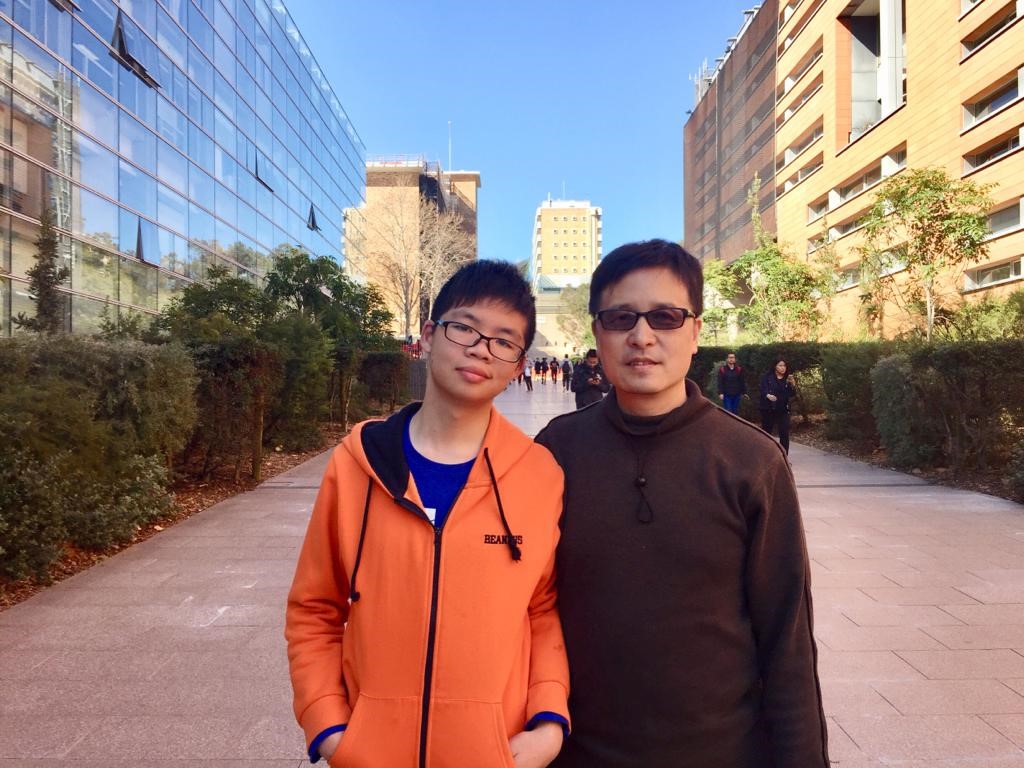
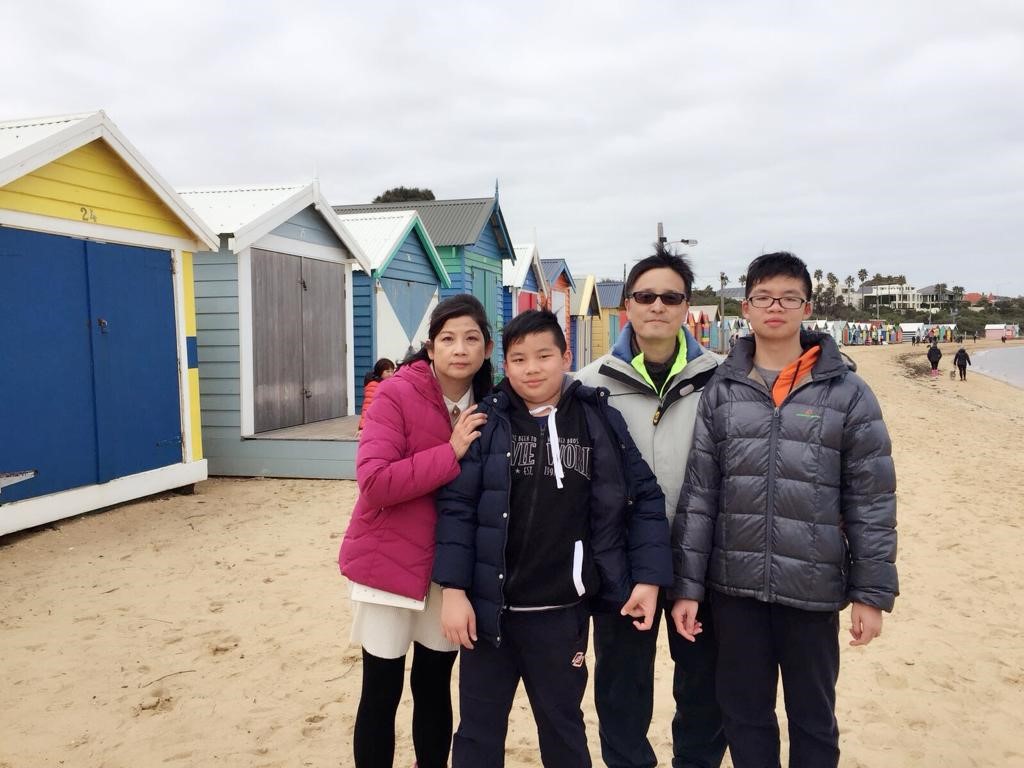
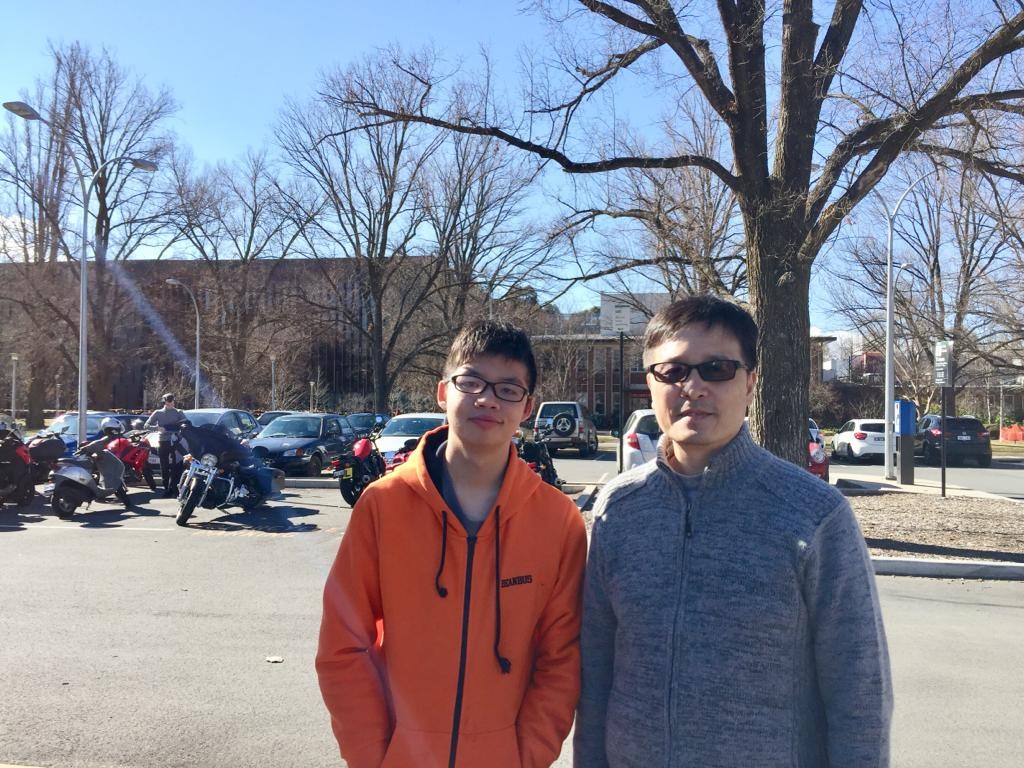
Why did you enroll Edwin in CAIS?
Edwin loves reading, doing experiments and projects. Before joining CAIS, he was with a well-known local primary school that emphasized heavy academic workloads, tests and exams – which was contrary to what he enjoys.
Towards the end of his primary school study, we made a move and chose CAIS – a switch from local to international school – because of the school’s academic reputation coupled with a vibrant Christian faith that supports the learning experience of all students.
Having studied in a traditional school setting, it came as no surprise that Edwin took some time to fully adapt to the change. But with a team of caring and dedicated Christian teachers, as well as small class sizes, it didn’t take long for Edwin to show steady progress in his studies and make new friends.
The Alberta/Advanced Placement curriculum at CAIS was another good reason for us to consider CAIS.
The diversity of subjects embedded in the Alberta curriculum meant that Edwin was able to select and study subjects he was interested in –programming, biology and information technology, in both physical and virtual classroom settings!
In addition, the culturally diverse learning environment at CAIS was a plus, enabling students to experience and appreciative a global outlook.
What do you make of the Alberta curriculum? Why would you consider it to be its strength?
Initially I was swamped with information about different international education systems and so the best way for me to understand their distinction was to research and make comparison.
Alberta curriculum is a flexible curriculum – not a one-size-fits-all approach. While some parents and students were huge advocates of the International Baccalaureate (IB) diploma program, I took differed in my conclusion.
An international qualification – a gateway to universities around the world – is all we need, irrespective of the curriculum we choose.
Universities, local and international, have the built-in mechanism that enables them to evaluate and convert the grading schemes within different national systems. Students are admitted to universities when they meet their admissions requirements.
Unlike other international education systems, Alberta is flexible in ways that it allows students to focus on their strengths and study subjects that they have strong interests in. The curriculum is designed with students in mind and the makes provisions for inclusive education.
With that in mind, it made sense to choose Alberta curriculum offered at CAIS.
Share with us your experience at CAIS?
I am very pleased to have Edwin study in CAIS in the last six years and if I need to make the choice again, CAIS would still and always be our first choice.
CAIS Christian teaching staff are caring and passionate about education which is vital for children’s development.
I am grateful for all the support we’ve received from CAIS. The school provides ongoing support to help children keep up with their learning goals, overcome setbacks and boost their confidence in learning new skills.
Edwin will graduate this year, what’s next for him?
Edwin is applying to universities in Australia as our family is moving back to Sydney. He is planning to further his studies in environment or information technology. He would like to get the experience to live near school campus and prefer not to study in universities in the Central Business District.
Currently he has narrowed his choice to the Bachelor of Coastal and Marine Science degree offered by either the University of Newcastle or the University of Wollongong.
A passion for music and music education #7 of 7
A passion for music and music education #7 of 7
June 2, 2020
We sit with accomplished musicians heading the CAIS Specialized Orchestral Training Program and ask them to take us to the beginning of their musical journeys, what inspired them, how they nurtured their passion and talent for music, their professional careers and what led them to teach music to others.
Violinist – Yu Sun
Vinod Khiatani (VK)
Yu Sun (YS)
Could you share with our readers a little bit about yourself.
I started learning music very early at the age of 4. My grandmother sang in the choir and she also taught singing privately. She asked me if I would be interested in picking up an instrument just for fun and I picked the violin.
Any particular reason why the violin instead of other instruments say the piano?
There was a little bit of a music culture in our family. My uncle played the violin as an amateur and from a very early age, I heard him practicing and I was fascinated by the instrument. We did have an upright piano at home but I did not play the piano until I was about 15 years old. Looking back though, I think it is a pity I did not start playing the piano earlier as it is helpful when one learns different instruments later on. I studied with quite good instructors but I was not studying it(violin) professionally. It was more like an extracurricular activity. After 10 years, my teacher asked me if I would like to study it professionally because I was quite good at it but not top tier. I agreed with her and did the audition for the school but due to limited space and lots of violin players, I shifted to the viola instead even though my preference was the violin. After studying in the conservatory, I graduated and faced two choices. Do I continue and study the instrument abroad or I look for a job in China. I decided to go overseas and went to Spain. I studied chamber music (string quartet) for 1 year. I think chamber music was foundational for me to understanding how to work with others as a team. That one year was very important in my professional development. After that I went to Germany.
You have covered roughly 20+ years. I am curious though. You mentioned that your teacher asked you whether you wanted to study the music at the conservatory after 10 years. That is a long time. Take us back to the first year when you began learning the instrument. How was the instructor?
The beginning, the first year, for most kids who pick the string instrument, they do not make a nice sound. It is quite different from the piano where you tap on a key and the sound is nice. But for string instruments, it requires some patience. I think that the first instructor/teacher is even more important than the big professors in my later life. A good teacher in the very beginning is very, very important. How you hold the violin, what is the right posture, how you put the bow and how you make a good sound from the beginning, that is very important. I had a very good teacher. She was very good for beginners. She could not only explain from the instrument but she could explain things in detail and tell you what is right or not right. In most cases, she would encourage me to think actively/positively. The interaction is very important. I think my study was quite smooth.
Did you ever think about giving up after say 3-4 years and move on to other things?
I actually never thought of giving up even though I did have some difficulty. But I am not a person who gives up easily. I guess it is my personality trait. My parents also were not typical. They did not force me to practice.
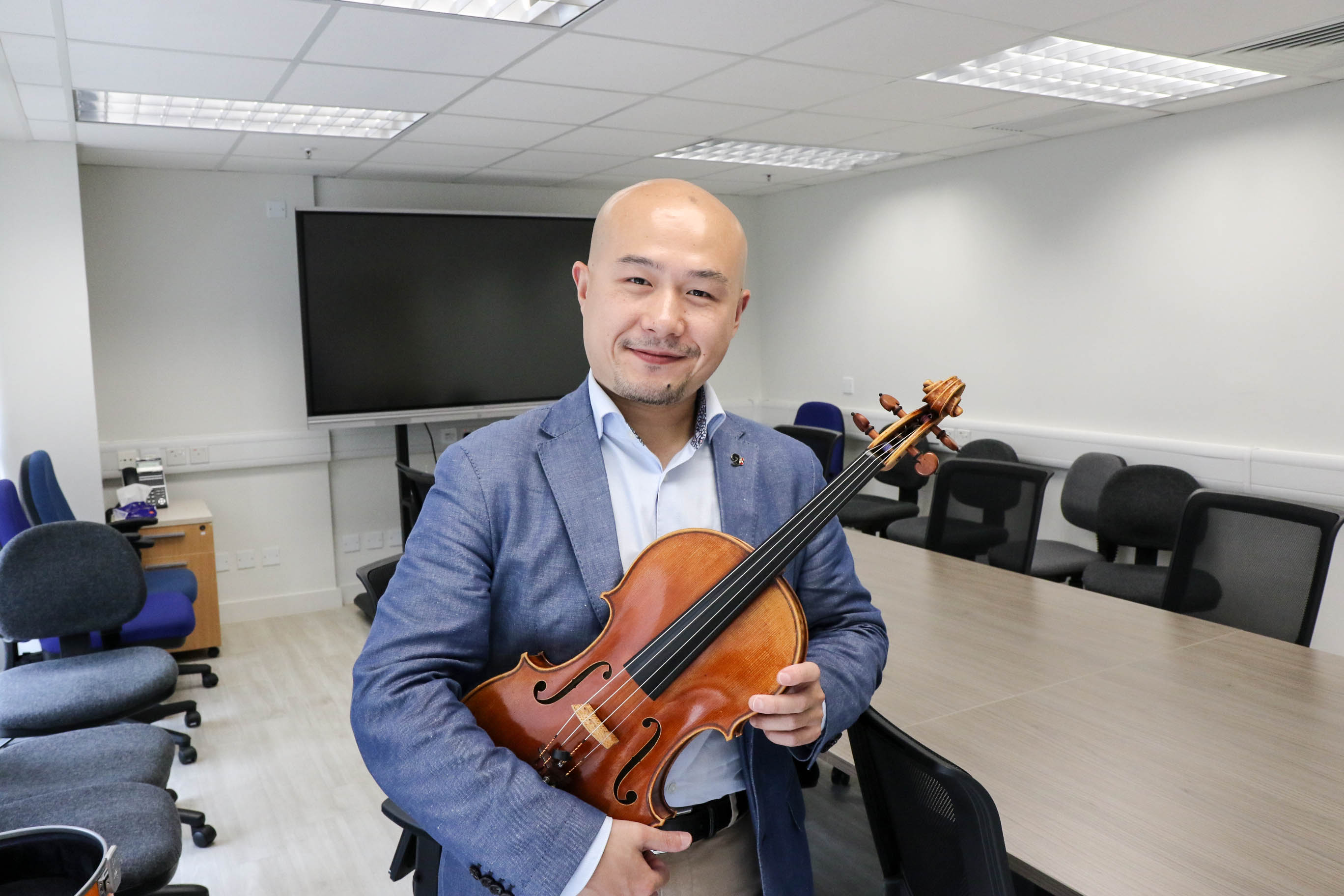 You mentioned that after the conservatory, you had to decide whether to go professional or look at other career options. Did you have any pressure from your parents to put aside music and work towards a “real” career?
You mentioned that after the conservatory, you had to decide whether to go professional or look at other career options. Did you have any pressure from your parents to put aside music and work towards a “real” career?
I actually did not face any pressure from my parents. My mother supported me a lot and encouraged me to continue studying music. I think it was while I was in the conservatory that I enjoyed music even more. The environment was very good. To be honest, when you are a student, you do not think that far ahead. I didn’t think that far ahead. I just wanted to make my playing better and back then, the Shanghai conservatory started inviting foreign musicians to teach master classes and they actually opened my mind alot. They spoke about background, culture and other kinds of arts. I didn’t know any of that and it raised my interest to go to Europe because that was the origin of classical music. Finances were also a consideration. My parents were not so well to do but studying in Spain and Germany were fully funded by the state. In Germany, there were many outstanding instructors. During my first year of study, I was asked by my professor to submit my application for audition with the Berlin Orchestra. I didn’t think my chances were great but I submitted and I was selected. That was my first orchestra experience. I am grateful that I was exposed to some of the world most renowned musicians and conductors. It was an unforgettable experience.
When did the desire to teach the instrument begin?
In my very first lesson in Berlin, I played for my teacher and she said to me “you will be a very good professor in the future”. I didn’t say a word to her in this regards but she arrived at this conclusion on her own. When I taught mass classes at the Shanghai Conservatory, I realized that my teacher was right. I learn things fast and explain them well. When I see my student making progress, there is a satisfaction I sense that is even better than the satisfaction I get from my performance. When I was playing with the European Orchestra, some students would ask me to instruct them on the fine points of playing. Later on, I was invited to actively participate in the Asian Youth Orchestra based in Hong Kong. The AYO is in its 28th year and I became the viola teacher. for about 3 years (3 seasons). Every summer, musicians from all over Asia come for a 1 month intensive training followed by a performance tour. Last year was the World Tour visiting America, Berlin, Vienna etc and this year was the China Tour visiting cities in Mainland China, Philippines, Japan and of course Hong Kong. It was a very good experience in how to work with young emerging musicians.
Is there a particular age group that you find yourself particularly effective with or that you connect better?
I think working with different age groups requires different approaches. I enjoy working with young kids a lot because they are like blank paper. If the kid has interest in making music, then we can develop much faster. I do also enjoy working with semi-professional musicians. But you are right; I adapt my methods with different learners.
What do you look for in a student say between the ages of 6-11?
I think it is too early to look for long term commitment from students whether they want to play for life as a career choice. But having said that, the first thing I want them is for them to like what they are doing. I want them to (without any compulsion) to pick up the instrument to play. The second thing I am looking for is that they are beginning to build their taste in art and culture. So even if they do not play the instrument when they go up, they would have developed their taste in artistic culture.
You mean cultivate the aesthetic sense in them?
Exactly.
How can parents help in fostering the interest of music in their child?
Before they start playing any instrument, I would encourage them to listen to others play the instrument. Hearing and seeing are better avenues for learning than telling them, so I advise parents to take their children to live concerts, or play some good classical music CDs at home. Classical music has a very rich heritage and exposing them to the music facilitates their emotional development at an early age.
Is there an ideal age to begin or it doesn’t really matter?
In my view, I think age matters. If you start at say 15 or 16, the skill development is slower. I think at a younger age, the muscle memory and brain development are given more time to develop. I think the ideal age range would be between 4-10 years. Of course everyone can ultimately learn to make
sound, but it just depends what kind of sound.
Have you noticed any transferable skills that you developed while learning to play the instrument to other aspects of your day to day living.
When I played in Chamber music and later in Orchestras, I learned some valuable skills. I learned how to put my ego aside and think subjectively from the other participants ‘perspective. Everyone has a perspective but if I only insist on my perspective, I will not develop further. I think another valuable skill was to develop the habit of listening to others to facilitate positive dialog. Those are the skills that have enriched other areas of my life outside music.
A passion for music and music education #6 of 7
A passion for music and music education #6 of 7
June 2, 2020
We sit with accomplished musicians heading the CAIS Specialized Orchestral Training Program and ask them to take us to the beginning of their musical journeys, what inspired them, how they nurtured their passion and talent for music, their professional careers and what led them to teach music to others.
Percussionist: Rieko Koyama
Vinod Khiatani (VK)
Rieko Koyama(RK)
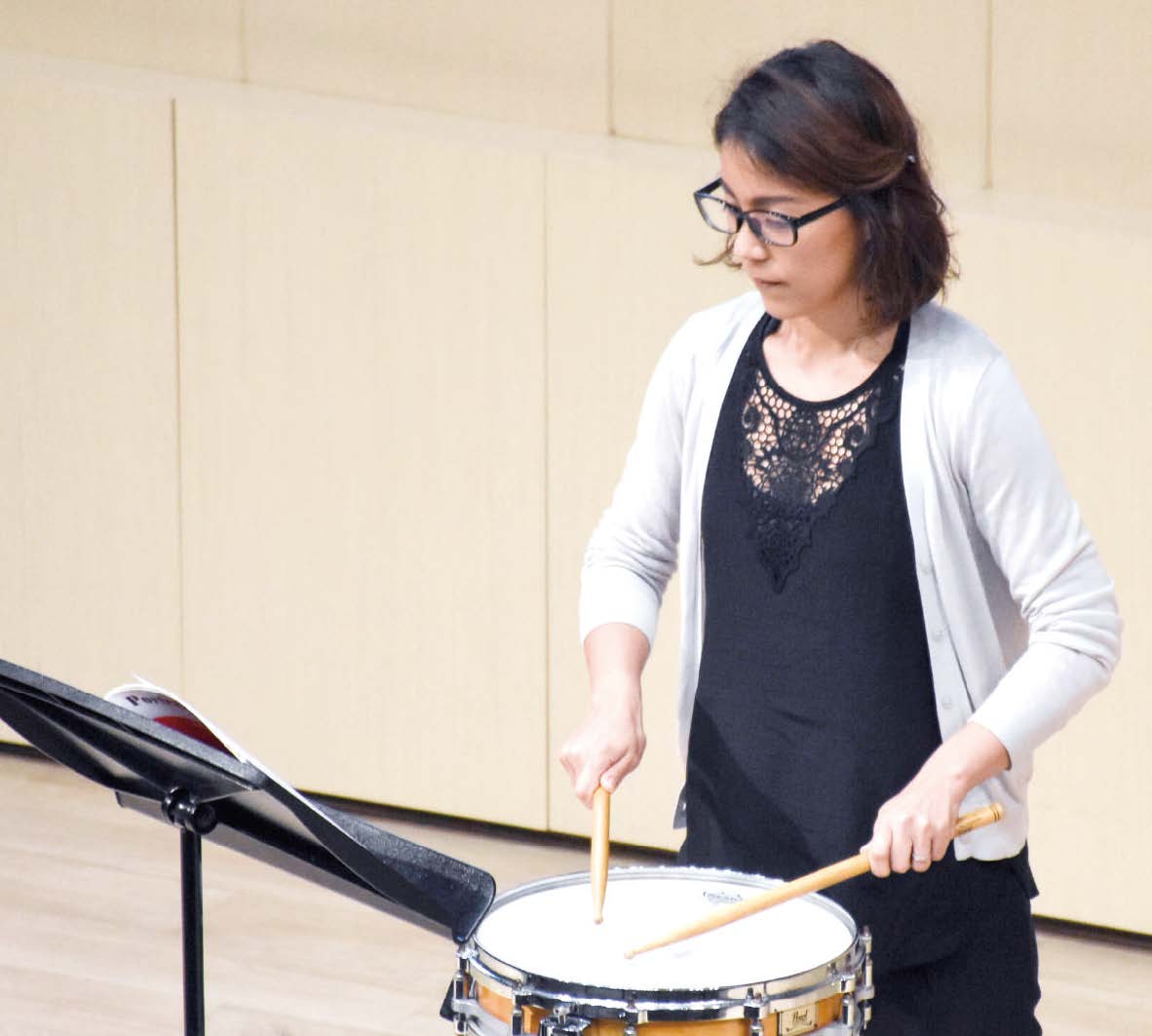 To start off, we thought our readers would be interested in how the journey began in Japan and ended in Hong Kong. Could you share with us your journey please?
To start off, we thought our readers would be interested in how the journey began in Japan and ended in Hong Kong. Could you share with us your journey please?
Yes, my journey began when I joined the marching bandin my primary school as an after school activity (in Japan we called them club). I was a very active young girl and the position of playing drums while moving appealed to me. I played and thoroughly enjoyed it. We practised for 2 hours every day after school and entered into competitions. But then they did not have the marching band in middle school so I just practised the drums on my own until high school when I joined the marching band again. In high school, my teacher showed a video of high school marching bands in America. I was fascinated by the level of creative movements and skills and wanted to pursue it more. At that time, my school also had a sister relation with a school in Canada and I approached my teacher to ask if I could go to Canada and join the marching band there.
So that ended the phase in Japan and led to the next phase in North America.
Exactly. I was in Canada for about 2 years and then auditioned to join a marching band in California and was selected. I was with them for about a year as they had a age limitation policy and I had reached it. Up to that time, I was involved in marching bands more out of interest but I thought seriously about what I wanted to do and thought it would be good to pursue music formally. The other option was to be a band instructor in a school back home and I wasn’t drawn to that option. So I did my Bachelors and Masters Degrees in music between Universities in Indiana and Boston. That was when I became involved with orchestral playing and performance.
Then you moved to Hong Kong?
No, I moved back to Japan first as there was an opening for orchestral training instructors to teach the younger generation and foster in them an interest in orchestral music performance. It was a 3 year commitment after which you were on you own. In the meantime, I was encouraged to audition for position in openings around the world.
Tell us something about these auditions?
They are very competitive and for every single position available, there can be a min of 10 auditions if the orchestra is small to a hundred if it is a fairly large orchestra. I can only describe the process as stressful. You submit your resume and if you are shortlisted, you are invited to play live and the pool shrinks until they (the interviewers) find the perfect match. It is a daunting experience and in my case, I was more desperate as I wanted to land a position after my 3 years in the Japan was done. And that is when I secured the position with Hong Kong Sinfonietta and I have been here since 2011.
I am curious what factors do they consider in auditions?
I would think experience and your live performance would weigh heavily. But to be shortlisted, perhaps you music education also play a factor.
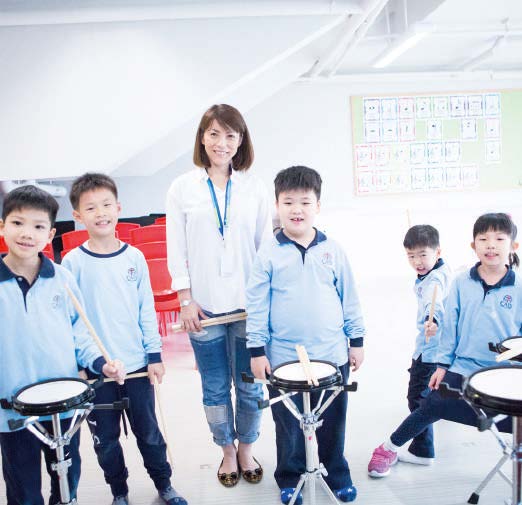
So how did you get into teaching?
I thought that perhaps I should broaden my skills set and try teaching but it was difficult in the beginning. In Hong Kong, we you are teaching violin or piano, there would be a ready demand as parents seem to prefer these instruments but percussion instruments were not so popular. So I decided to start small and worked with toddlers age 3 and above through music movement classes. That became popular and I move on to make curriculum for age 4 and above and it kept growing. I found myself enjoying the experience of seeing children explore music and take interest in it. In Hong Kong I think that parents want their children to cultivate their creativity and they look to music and art to help cultivate it but sometimes the decision is then imposed on the child. In Japan, when I was growing up, parents then to be more laid back and allow the student to explore various avenues and let the interest be self-initiated. In a small measure, I am trying to cultivate self-interest among student here.
How can a parent foster that interest in their children?
I would say that the most preferred and fruitful avenue is to take them to live concerts. Sure they can listen to music on their devices or play their DVDs on the best sound systems but nothing compares to a real live concert. It gives them a different level of appreciation and would likely spare their interest in learning a musical instrument.

